
Highlights of the 2025 Virtual ANC
![]() Date: January 15, 2026
Date: January 15, 2026
![]() Author: Sameena Siddiqui
Author: Sameena Siddiqui
![]() Time: 3 minute read
Time: 3 minute read
The following resources on child trauma were developed by the NCTSN. To find a specific topic or resource, enter keywords in the search box, or filter by resource type, trauma type, language, or audience.

![]() Date: January 15, 2026
Date: January 15, 2026
![]() Author: Sameena Siddiqui
Author: Sameena Siddiqui
![]() Time: 3 minute read
Time: 3 minute read

![]() Date: February 13, 2026
Date: February 13, 2026
![]() Author: Isaiah B. Pickens
Author: Isaiah B. Pickens
![]() Time: 10 minute read
Time: 10 minute read
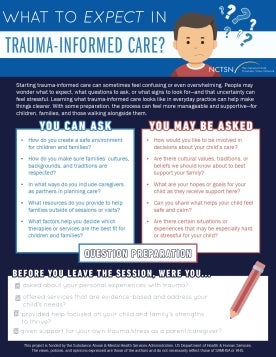
Helps families understand what trauma-informed care looks like in practice and supports caregivers in preparing for conversations that center safety, collaboration, and their child’s strengths.
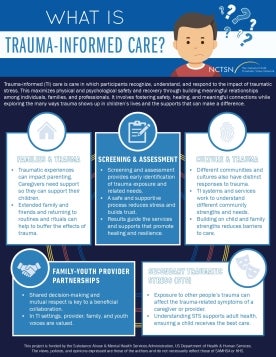
Introduces trauma-informed care and explains how recognizing the impact of trauma helps create safe, supportive environments for children, families, and providers.
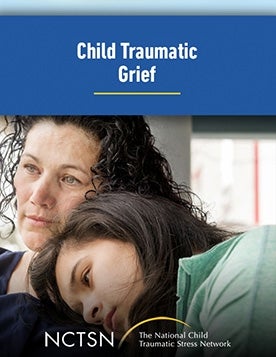
Introduces learners to the symptoms of Childhood Traumatic Grief (CTG) and Prolonged Grief Disorder (PGD). It explores how cultural and religious rituals, holidays, school events, and personal anniversaries can both support and challenge grieving children.
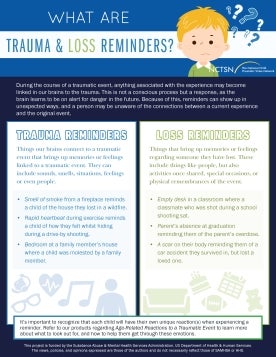
Explains how everyday sights, sounds, and experiences can unexpectedly trigger memories or emotions tied to trauma or loss. Helps caregivers understand these reminders and recognize how they may show up differently for each child.
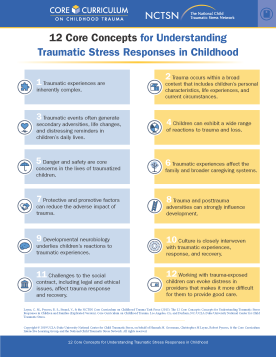
Offers the 12 Core Concepts for Understanding Traumatic Stress Responses in Children and Families on one quick reference sheet.
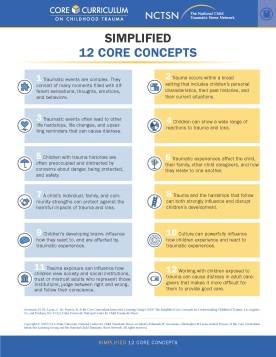
Is a more accessible version of the 12 Core Concepts, written with simplified language to support understanding across a range of literacy levels and learning needs. It is especially useful for audiences unfamiliar with clinical terms or new to trauma concepts.
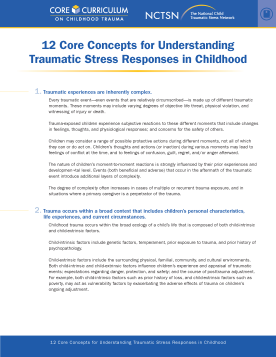
Offers a bulleted version of the 12 Core Concepts for Understanding Traumatic Stress Responses in Children and Families.
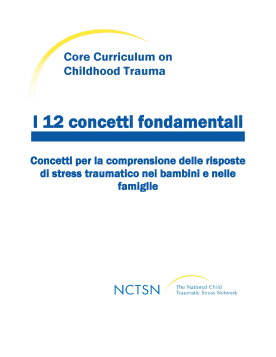
Outlines and describes the 12 Core Concepts: Concepts for Understanding Traumatic Stress Responses in Children and Families. Translated in 2024.
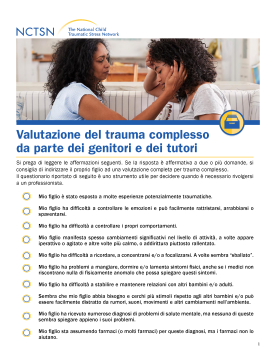
Offers parents and caregivers a brief checklist to use to determine if a complete assessment for complex trauma should be scheduled. This fact sheet will help parents and caregivers determine when to seek professional help. Translated in 2025.
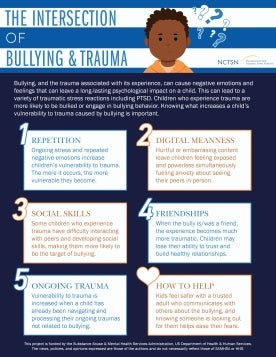
Highlights the intersection between bullying and trauma and offers ways adults can help them feel safe and supported.